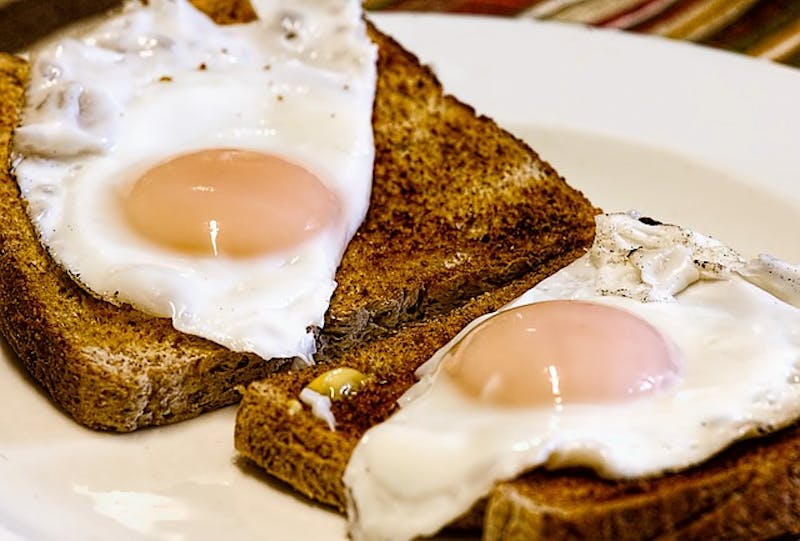
There are some common food myths so ingrained in our culture that lots of people – including physicians and health care professionals – accepts them as fact even though there is no evidence to support them. We’re not sure where or why these myths started, but we’re here to get to the bottom of them once and for all.
Common Food Myth #1: Egg yolks are bad for you.
It’s true that egg yolks contain a significant amount of cholesterol – about 200 milligrams in a single yolk – and that too much cholesterol in the blood can contribute to heart disease, but that’s where the connection stops. The cholesterol you eat actually has very little impact on the cholesterol in your blood. In fact, your body makes 75 percent of the cholesterol in your blood; so when you eat more cholesterol, your body just makes less. Eggs are actually a good source of 13 different vitamins and minerals, most of which are found in the yolk.
Food Myth #2: Eating late at night makes you gain weight.
When someone is trying to lose weight, eating at night is often one of the first things to go. There is a common belief that when you eat food after a certain time, your body stores it as fat, but that’s not true. It’s not the time on the clock that is the cause for the weight gain; it’s the fact that in many cases, the late night eating occurs in addition to a full day’s worth of meals. If your late night snack puts you over your calorie needs for the day, you may gain weight.
Common Food Myth #3: Fat makes you fat.
This a myth that seems to persist no matter what the research shows. For some reason, people tend to believe that fat is largely responsible for weight gain, when in fact, eating it can actually help you lose weight. Some fats, like those found in coconut, actually help boost metabolism and give you a quick source of energy. It’s true that overdoing it on fat can lead to weight gain – since each gram contains 9 calories – but the same is true of any of the macronutrients. If you eat too many calories, you’ll gain weight, regardless of where they come from.
Food Myth #4: If there’s fiber in it, it’s good for you.
Manufacturers would love you to believe that their fiber bars and fiber-enriched snacks are the perfect alternative to fiber-rich whole foods, but don’t let them fool you. The faux fiber manufacturers add to these snacks foods does not provide the same health benefits as the fiber naturally found in things like beans and broccoli. In addition, these snacks are often loaded with sugar so the cons end up outweighing any potential pros.
Common Food Myth #5: You need to drink 8 glass of water each day.
The 8 glasses of water a day rule is one that is widely accepted and widely spread, but the recommendation is really just a suggestion that seems to have taken hold. The truth is everyone’s water needs are different. Your age, gender, activity level, size, and climate all play a role in how much water you need. If you’re looking for a general recommendation, aim to drink at least half your body weight in ounces. Although this is still just a suggestion, it’s a little more specific.

